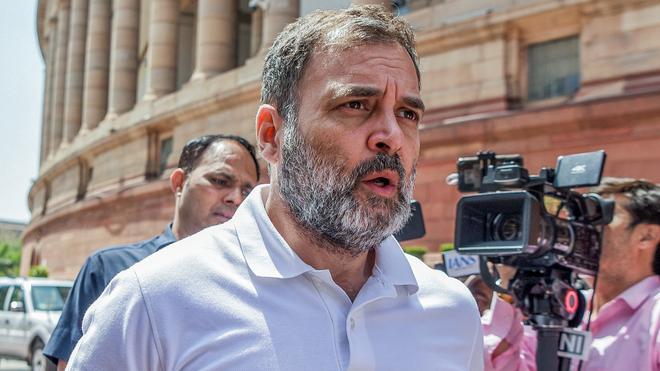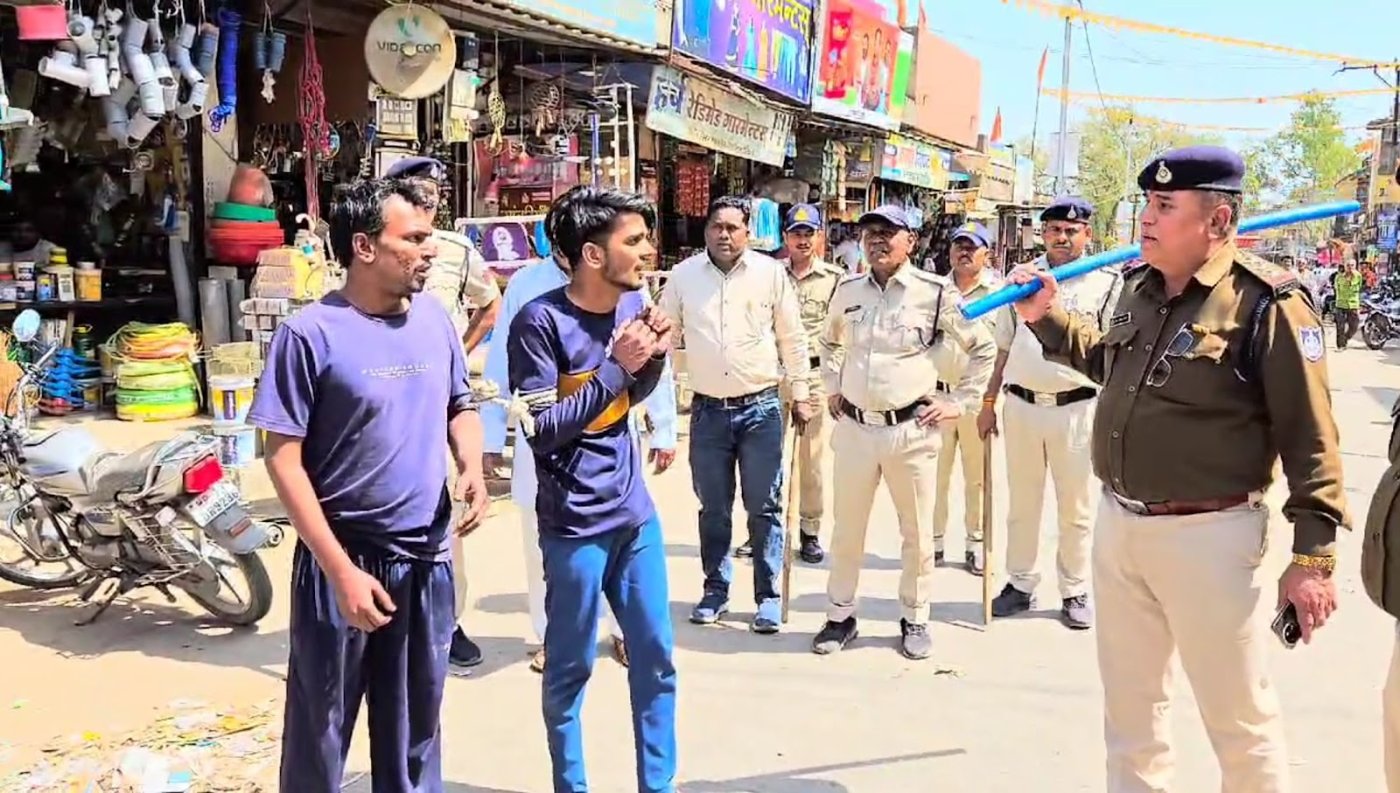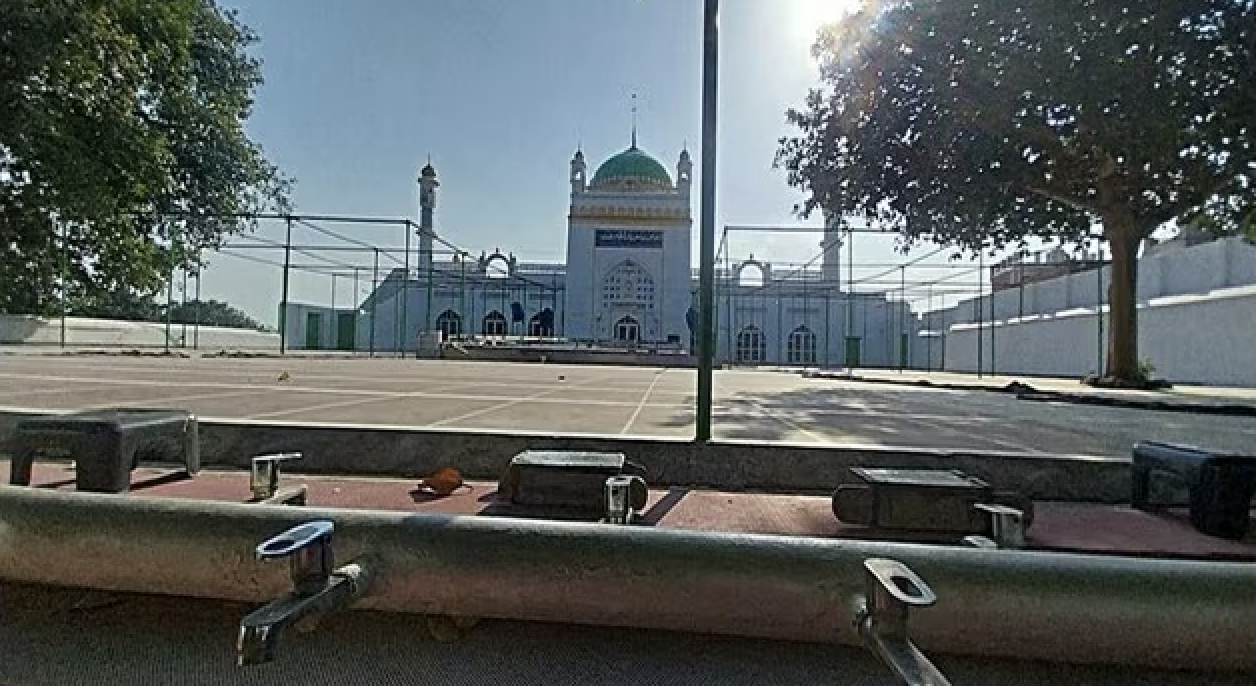
Bengaluru: Karnataka’s winter assembly session begins Monday, which will see the tabling of the controversial anti-conversion bill, at a time when there have been a spate of attacks on Christians and churches across the state.
The latest of these attacks came over the weekend. On Saturday, a sword-wielding man entered a church in Belagavi and threatened the pastor. The video of the incident, recorded on CCTV cameras, has gone viral.
While church representatives filed a complaint with the local police, an arrest is yet to be made.
“The accused seems to be of an unstable mind. A complaint has been filed by the church authorities. The accused seems to be a repeat offender. We are in the process of tracing the accused,” Dr Thiyagarajan, Commissioner, Belagavi Police, told The Print.
On Sunday, a group of Hindutva activists disrupted a prayer meeting at Srinivasapura in Kolar alleging illegal religious conversion. Police had to intervene and calm tensions.
Members of the Christian community have been claiming that the attacks have been increasing ever since the government spoke of introducing the anti-conversion bill.
Chief Minister Basavaraj Bommai and Home Minister Araga Jnanendra have, however, insisted that the law will strengthen already existing legislation against alleged forced conversions.
“The bill is only to prevent religious conversions by inducement,” Bommai told reporters in Hubballi Sunday, adding that the law department was studying similar legislation passed by Odisha.
“The draft will be placed before the cabinet and if approved, then it will be tabled in the Belagavi session,” Bommai said.
Opposition parties, minorities up in arms
With the Bharatiya Janata Party-led Karnataka government pushing for the anti-conversion bill, opposition parties as well as minority communities, especially Christians, have opposed it.
Karnataka Pradesh Congress committee chief D.K. Shivakumar has repeatedly stated that the bill is anti-minority.
“There is already a law to prevent unlawful conversions through force, allurement or inducement. What is the need for a new law? This is only to harass minorities and embolden attacks on them,” Shivakumar told reporters in Bengaluru Friday.
The Christian community in Karnataka has alleged that ever since the chief minister spoke of introducing the anti-conversion law, attacks on religious minorities, churches, and prayer meetings have increased.
“The issue of forced conversion is a highly exaggerated subject. Many of our BJP leaders have studied in Christian schools and they have also chosen Christian hospitals for the medical treatment.
None of them were forcefully converted,” Rev. Dr Peter Machado, Archbishop of the Bengaluru Diocese and President of the Karnataka Regional Catholic Bishops’ Council, said in a press statement issued on 4 December.
The statement comes in the backdrop of several BJP leaders alleging that Hindus were being lured to convert across the state.
The BJP MLA from Hosadurga, Gulihatti Shekhar, began the offensive first during the previous legislative session in September. While heading the committee on minority and backward classes welfare, he ordered a survey of all churches, priests and missionaries in the state.
“People from backward classes, poor families are being lured into conversion. Even as early as 2008 when I was a minister, people from my community (Lambani) were being converted with allurement. I was even threatened for interfering. Now the instances have increased,” Shekhar had told ThePrint then.
But since his comments in the legislative assembly, there have been multiple instances of Hindutva outfits attacking prayer meetings, protesting inside churches and disrupting prayers by Christians.
Spate of attacks
In October, members of Vishva Hindu Parishad and Bajrang Dal barged into a church in Hubballi and sang Hindu prayer songs, bhajans during a prayer meeting.
Then on 19 October, a pastor from Hubbali, Somu Avaradhi, was arrested on charges of converting a Dalit man, following protests led by BJP MLA Arvind Bellad.
On 28 November, members of the Bajrang Dal stormed into a church in Belur of Hassan district alleging illegal conversions. A video of devotees, mostly women, fighting off the men went viral. Weeks since, the case has seen no FIRs or arrests. The matter has been dropped as “amicably settled”.
Earlier on 7 November, members of the radical Hindutva outfit Sri Rama Sene Hindustan locked up a pastor and Christian devotees during a prayer meeting at Maratha colony in Belagavi district.
An FIR, however, was filed against the pastor, while those who disrupted the prayer meeting faced no consequences, with the Christian community alleging that this was becoming the norm.
“The pastor received bail soon after the FIR was filed but no complaint was received against the members who stalled the prayer meeting. Hence, no case has been filed against them,” Dr Thiyagarajan, Commissioner, Belagavi Police, told The Print.
He also denied charges from the Christian community that the police had asked them to not hold prayer meetings until the legislative session in Belagavi concluded.
J.A. Kanthraj, spokesperson for the Archdiocese of Bengaluru, disputed the police claims.
“There was no written order but the community was asked to stop holding prayers for its ‘own safety and interest’,” he told ThePrint. “The law allows all of us to practice and process our religion but here we are being asked to stall our prayer meetings.”
Rev. Dr Peter Machado, in a press conference held in Bengaluru last week, said the law will only embolden the attacks.
“Since January, there have been 32 attacks reported on churches in Belagavi, Hubballi, Belur and other areas, with five or six serious cases in the past few weeks,” he said. “If this can happen without the legislation, imagine what will happen after the legislation is passed.”
This story first appeared on theprint.in






